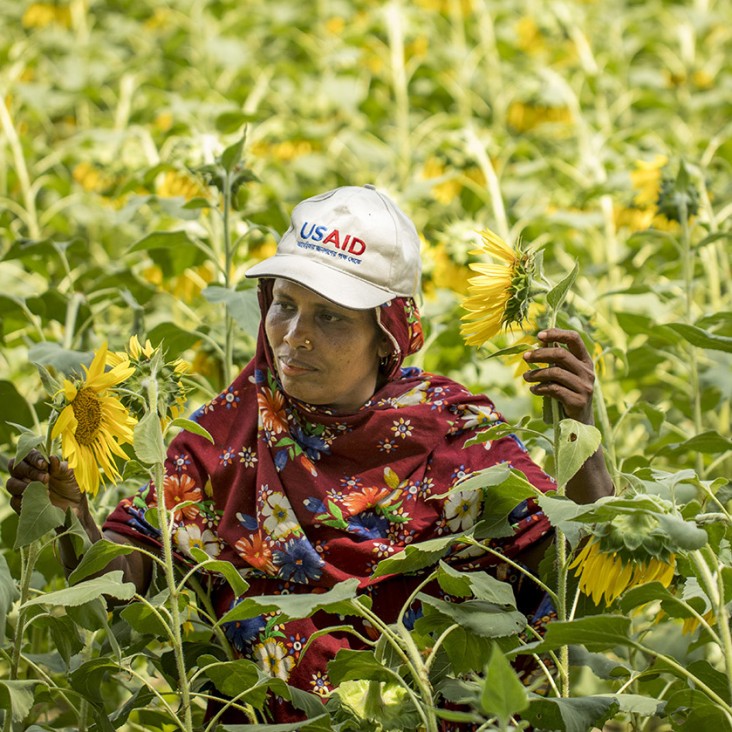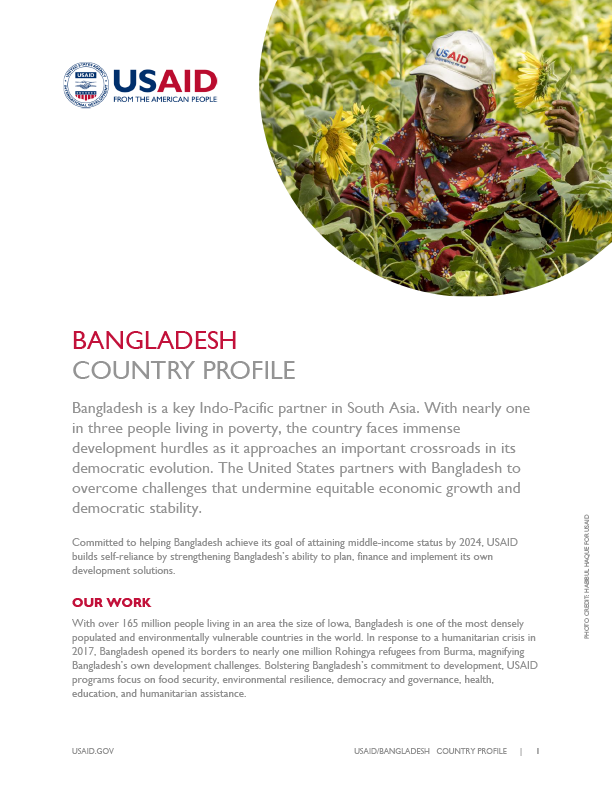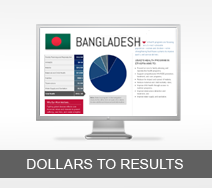Speeches Shim

Bangladesh is a key Indo-Pacific partner in South Asia. With nearly one in three people living in poverty, the country faces immense development hurdles as it approaches an important crossroads in its democratic evolution. The United States partners with Bangladesh to overcome challenges that undermine equitable economic growth and democratic stability.
Committed to helping Bangladesh achieve its goal of attaining middle-income status by 2024, USAID builds self-reliance by strengthening Bangladesh’s ability to plan, finance and implement its own development solutions.
Our Work
With over 165 million people living in an area the size of Iowa, Bangladesh is one of the most densely populated and environmentally vulnerable countries in the world. In response to a humanitarian crisis in 2017, Bangladesh opened its borders to nearly one million Rohingya refugees from Burma, magnifying Bangladesh’s own development challenges. Bolstering Bangladesh’s commitment to development, USAID programs focus on food security, environmental resilience, democracy and governance, health, education, and humanitarian assistance.
Food Security and Environment
High population density, loss of arable land and biodiversity degradation threaten millions of livelihoods and Bangladesh’s natural resources. To encourage sustainability, USAID promotes biodiversity conservation and improved natural resource management of more than 2.5 million acres of wetlands and forests. This has helped nearly triple rice production over 20 years and increase farmers’ incomes.
Bangladesh Country Profile ![]() (pdf - 417k)
(pdf - 417k)
Democracy and Governance
Democratic dialogue is diminishing due to government actions and targeted, extremist attacks. USAID programs support an open democratic process, human rights and a holistic approach to counter violent extremism within Bangladesh’s social and political context. USAID strengthens democratic institutions, helps combat gender-based violence and human trafficking, and empowers workers to be self-advocates.
Health
Poverty and other factors often encourage girls to marry and have children at a young age, significantly testing Bangladesh’s health care system. With USAID support over the last two decades, Bangladesh has reduced maternal and child mortality by two-thirds and has increased access to health services through 399 clinics – and 10,700 satellite clinics – that cover all of Bangladesh’s 64 districts.
Rohingya Emergency Response
Since August 2017, nearly one million Rohingya refugees have fled violence in Burma’s Rakhine State to Cox’s Bazar, Bangladesh. USAID provides basic life-saving assistance, including food assistance and urgent nutrition services to those most vulnerable, and assists vulnerable host communities through primary health services, reading education, and the construction of multi-purpose cyclone shelters.
LEARN MORE




Comment
Make a general inquiry or suggest an improvement.